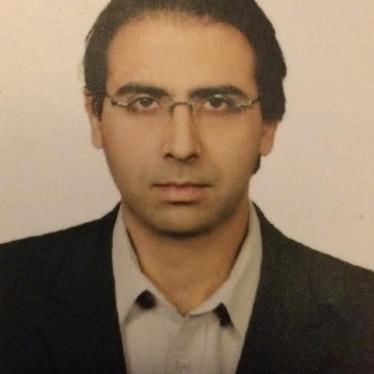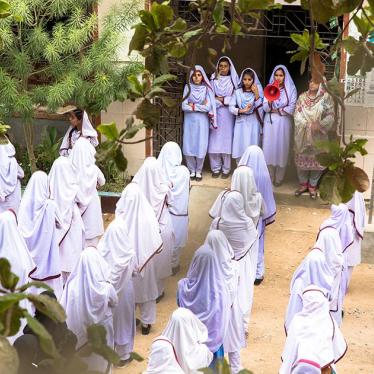The Pakistani government’s execution of two convicted Lashkar-e-Jhangvi (LeJ) militants symbolizes a victory of form over substance in its avowed battle against extremist insurgents.
The authorities hanged Attaullah Arif Qasim and Muhammed Azim Arif Sharif on February 3 for their role in the sectarian killing of a Shia physician in Karachi in 2001. The executions are the most recent since the government lifted its moratorium on the death penalty for terrorism-related crimes in response to the December 2014 attack on a Peshawar school by the Pakistani Taliban splinter group Tehreek-e-Taliban (TTP). That attack left at least 148 people dead, mostly children.
The LeJ is an undeniably brutal and dangerous militant group that has murdered hundreds of members of the Shia minority, particularly Shia Hazara in Balochistan, over the past decade. Human Rights Watch research indicates more than 500 Shia Hazara have been killed in bombings and other attacks since 2008 alone.
But the government is fooling itself – and the Pakistani public – if it thinks that executions are an effective response to the LeJ’s well-documented atrocities. Taking substantive action against the LeJ requires the government to address its own history of shameful failures in bringing group members to justice.
The Pakistani government’s response to sectarian violence is riddled with incompetence, indifference, and possible complicity by security forces and other state personnel with the militants. The authorities have long failed to apprehend or prosecute members of the LeJ and other militant groups that have claimed responsibility for such attacks. While Pakistan and Balochistan authorities claim to have arrested dozens of suspects linked to attacks against Shia since 2008, only a handful have actually been charged with any crimes.
To tackle the violent extremism of the LeJ and other groups, Prime Minister Nawaz Sharif needs to stop his ill-conceived and vengeful campaign of executions of convicted terrorists, and act upon his commitment that “No armed organization will be allowed to operate,” which is embodied in the new National Action Plan (NAP) against terrorism.
For a start, the authorities should immediately arrest and charge the leaders, members, and affiliates of the LeJ who are responsible for sectarian violence and other crimes. The government also needs to undertake a thorough house cleaning to end any affiliations with militant organizations implicated in abuses.
These steps will require political will. But failure to do so will serve only to sacrifice the safety and security of imperiled religious minorities and other citizens for the cynical move of choosing the noose over an effective counterterror policy.









